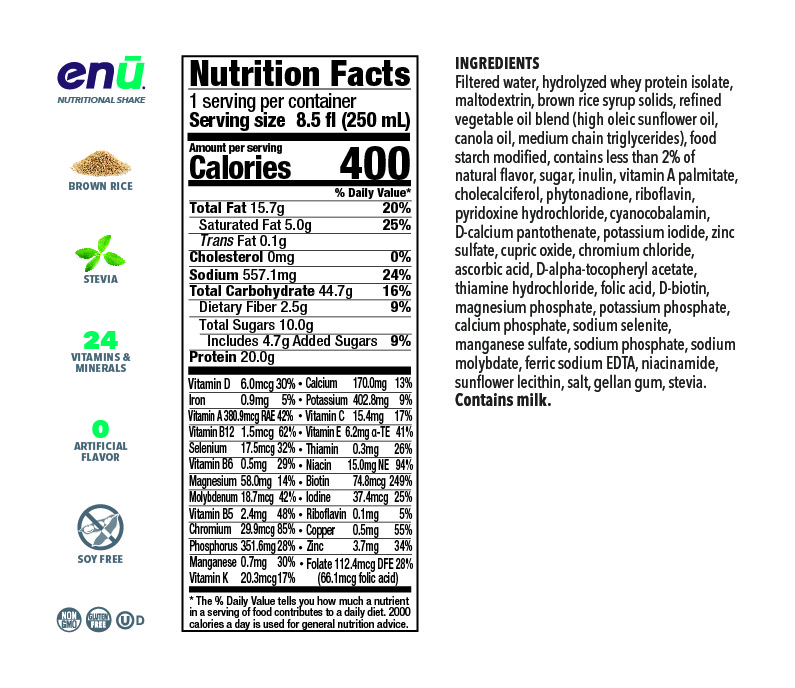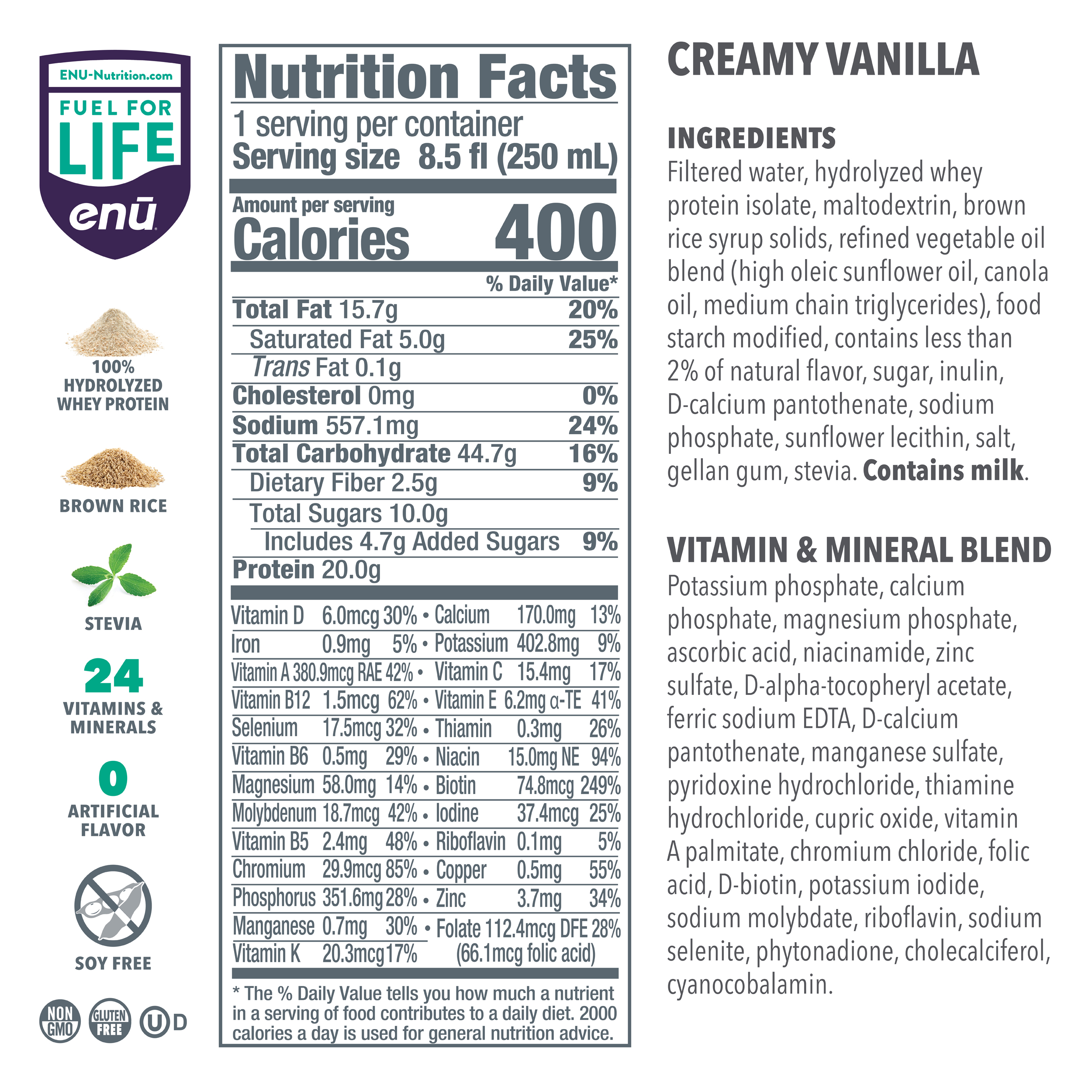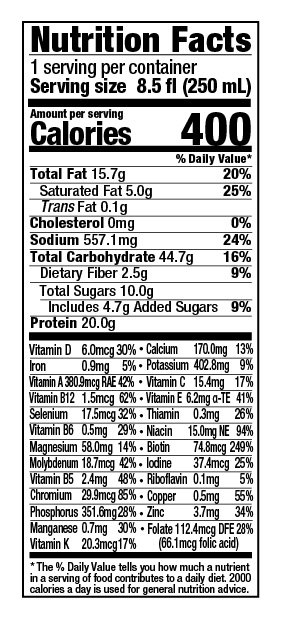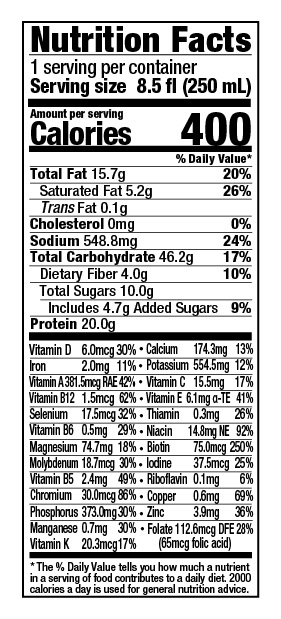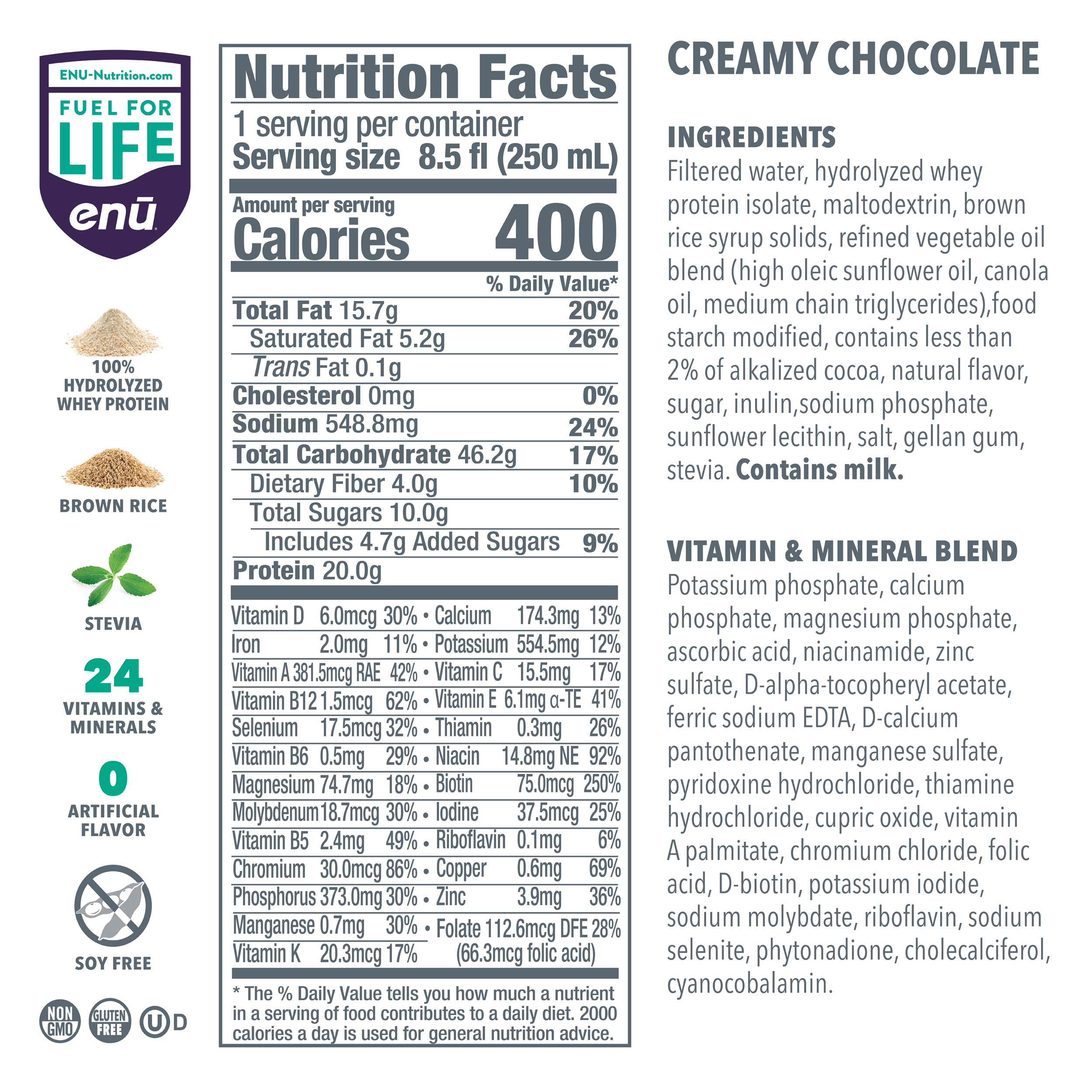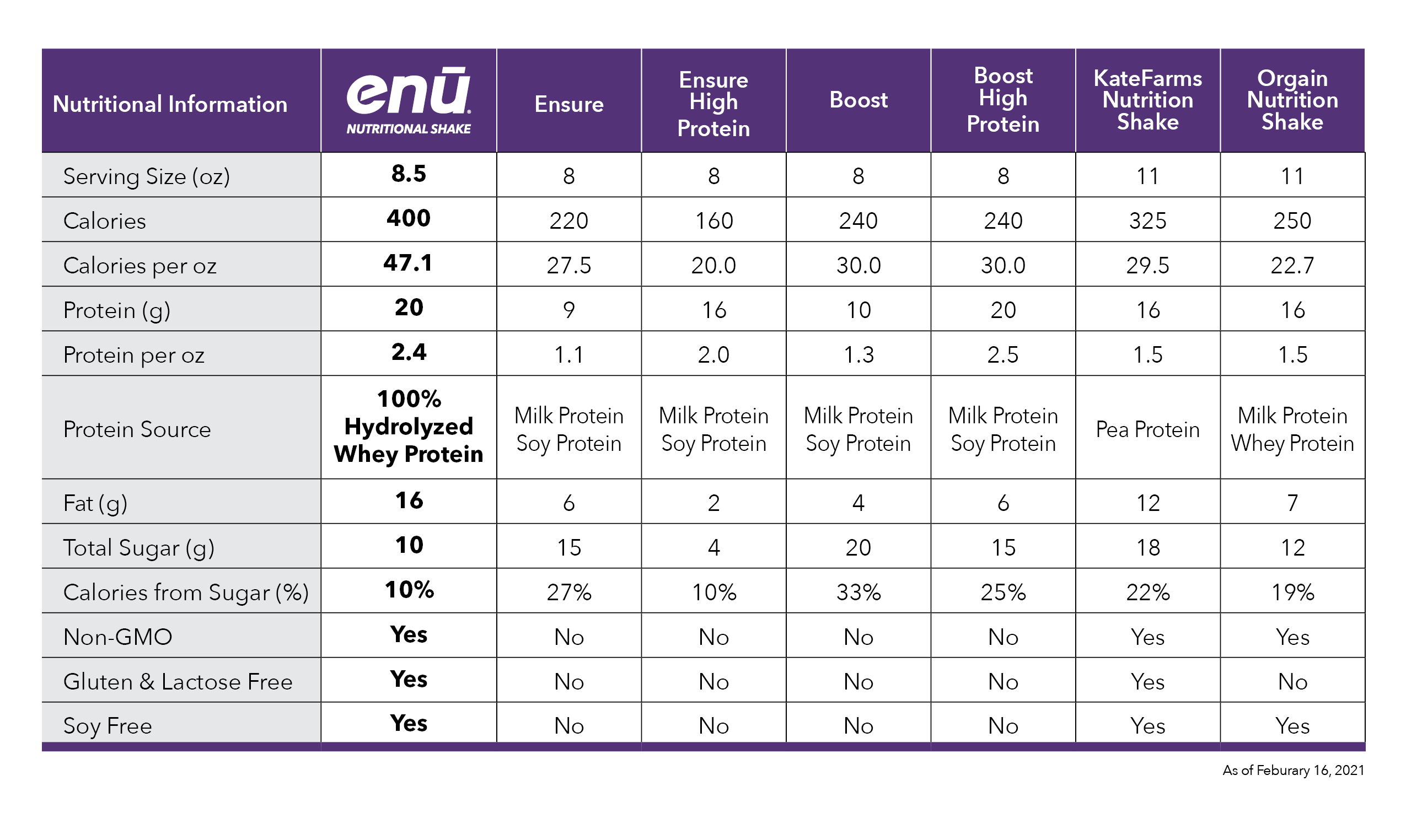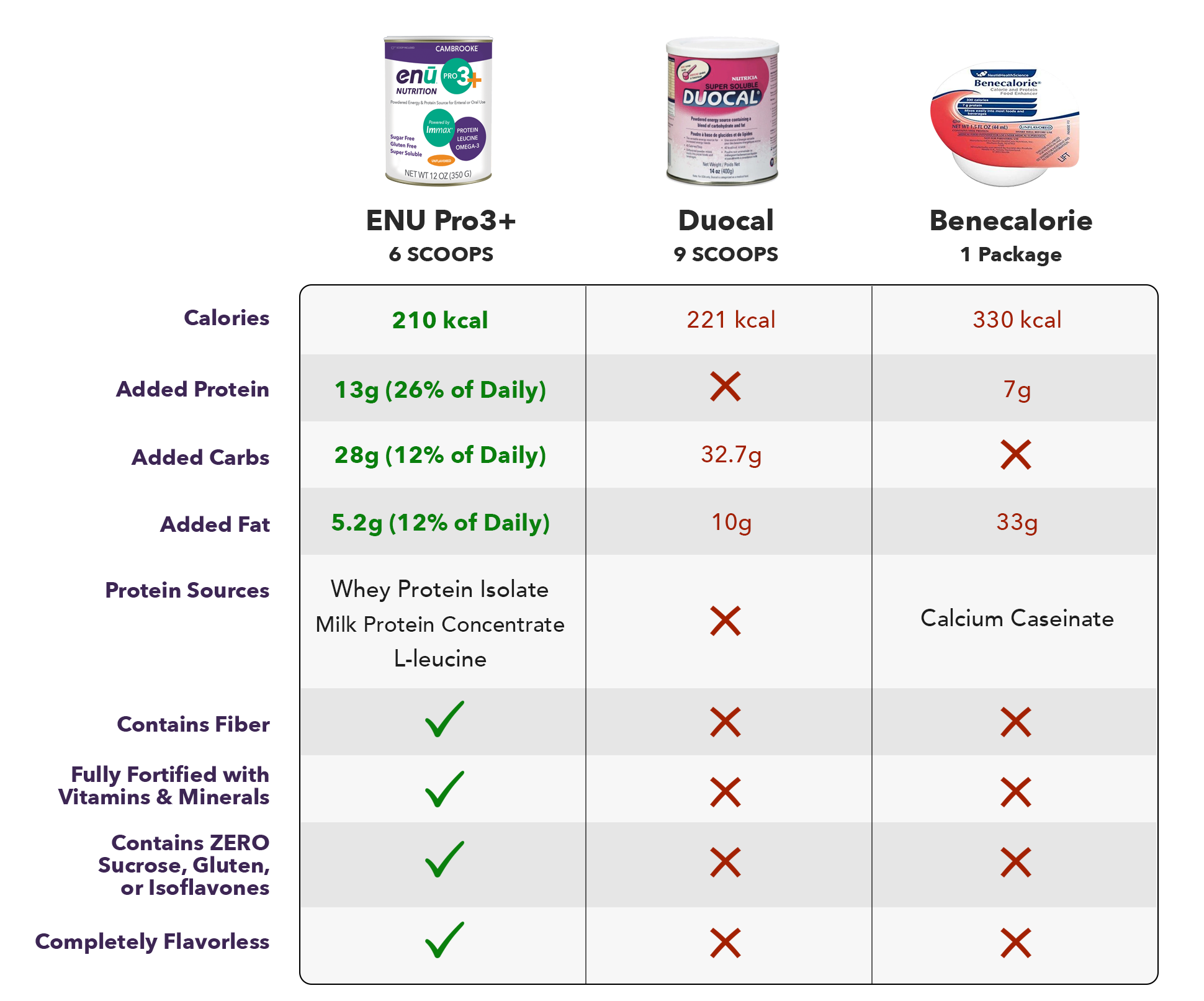
Get a FREE
ENU Intro Pack*
*Just Pay $2.00 Shipping

Helping Manage Malnutrition in Cancer Patients
Living with cancer is a constant balancing act. On one side, there’s the constant struggle to contend with the symptoms of the condition and the side effects of treatment; on the other, there’s the need to maintain healthy habits, which can be tough under even the best of circumstances. The result of these difficulties is that many patients struggle with malnutrition, a condition brought on by a lack of proper nutrients in the diet. Though it’s often associated with low weight, malnutrition can affect even those who may be seen as overweight, and individuals with cancer face a significant risk of becoming malnourished. If you or someone you know has cancer and is struggling with a lack of adequate nutrition, you’d probably like to know more about helping to manage malnutrition in cancer patients. Keep reading as the team at ENU – makers of nutrition shakes for cancer patients – explain.
The Dangers of Malnutrition in Cancer Patients
It’s no secret that malnutrition is a danger to a person’s health, whether that individual has cancer or not, but what’s often less clear – both to patients and caregivers – is the way malnutrition can affect the treatment and recovery of those battling cancer.
When undergoing chemo, radiation, or immunotherapy, the body’s systems are constantly being broken down by the treatment, which means that it has to recover in the limited time between doses. To do so, the body needs adequate amounts of the raw materials – i.e., nutrients – that are used to make new, healthy cells and aid the healing process. When suffering from malnutrition, cancer patients often find themselves unable to regain their strength between treatments or after surgery, which could lead to delays that worsen their prognosis over time.
The harmful effects of malnutrition during cancer extend beyond clinical concerns, however. The lack of nutrients associated with malnutrition can significantly impact a cancer patient’s quality of life by limiting their energy and making everyday activities even more strenuous. It can also make it more difficult to manage the symptoms of cancer or the side effects of treatment, so it’s important to manage malnutrition in cancer patients whenever possible.
Tips for Preventing Malnutrition in Cancer Patients
Ultimately, the best way to fight malnutrition is to avoid developing the condition in the first place. Although that’s easier said than done when fighting cancer or enduring a difficult treatment regimen, avoiding malnutrition can help you maintain your quality of life. Try the following tips to make the effort easier:
Eat Smaller Meals More Often
Instead of trying to force down three large meals each day, try breaking up your nutritional intake into five or six smaller meals spaced throughout the day. This strategy may be easier on your digestive system and help you eat more food overall, which can fend off malnutrition in the long run.
Identify Risk Factors
Certain symptoms and side effects can increase your risk of becoming malnourished, so learning to spot them and address them quickly can help ensure a healthier diet. Nausea, mouth sores, changes in taste or smell, appetite loss, chronic pain, and a lack of access to healthy food can all contribute to malnutrition in cancer patients.
Focus on Calories and Protein
With so many nutrients to consider, finding ways to get enough of all of them can get a bit overwhelming. Try to focus on getting enough calories, which give you energy, and protein, which helps wound healing and cell production, to help your body stay strong during cancer. Ask your doctor whether a high-calorie, high-protein nutrition shake can help.
Consider Supplements
Most nutritionists consider whole foods to be the best source of nutrition, but traditional food doesn’t always cut it when battling cancer. Adding a dietary supplement to your routine, such as a weight management shake or balanced meal replacement drink, may help you stay nourished without forcing you to drastically change your routine or eating habits.
How to Help Cancer Patients Manage Malnutrition
Even if preventative measures are taken, it’s still possible to develop malnutrition, if only because of the severity of cancer’s symptoms and the debilitating nature of cancer treatments’ side effects. If you suspect that you or a loved one has developed malnutrition, the first thing you should do is contact the patient’s oncologist or a member of their cancer care team. Many facilities offer nutritional support as part of a comprehensive cancer treatment strategy, so there are likely resources available to help manage malnutrition.
Chances are, if malnutrition has become an issue, the first step will be to identify the cause of the issue. The most effective treatments for malnutrition in cancer patients are those that target the reason behind the nutritional deficiency; it could be a lack of appetite, a change in metabolism, a lifestyle change, or a variety of other factors. Once your doctor has found the reason for your malnutrition, it’s important that you stick to the treatment plan they offer as a solution, even if it’s difficult.
Try ENU Nutrition Shakes and Powders to Help Manage Malnutrition During Cancer
Although there are lots of ways to approach nutrition management for cancer patients, the goal of all of them is more or less the same: to ensure the body has what it needs to get through treatment and recover from cancer. To that end, ENU shakes and nutritional powders can help by increasing calorie and nutrient intake through dietary supplements that are both convenient and palatable. Learn more about the benefits of ENU products by visiting us online or calling (855) 266-6733 today.




